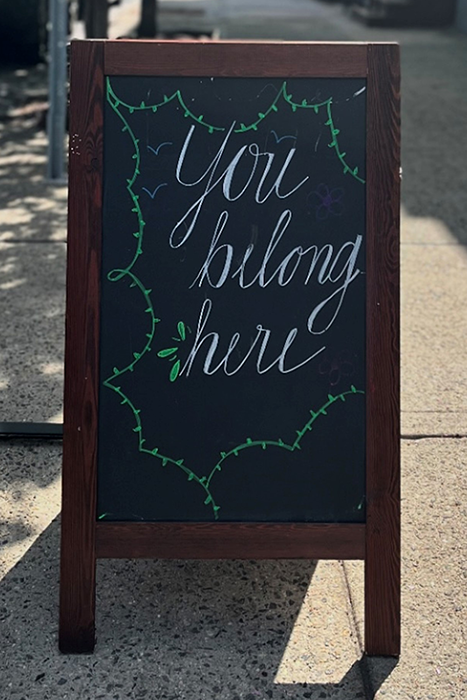An equitable community of belonging is one in which people from all backgrounds and identities experience deep connection through both individual and collective encounters, are embraced and encouraged to be their true authentic selves, are in a space where they can fulfill a human emotional need, where distributed power is embraced, and everyone can contribute to the design of the ecosystem.
Guiding Principles
The guiding principles outlined below are designed to cultivate trust and foster a shared sense of purpose, laying the foundation for a genuinely inclusive and affirming community. By embracing empathy, mutual respect, and a commitment to equity, these principles support the creation of spaces where all individuals from all backgrounds feel valued, connected, and empowered to contribute.
Love (Ahavah): A range of positive emotions resulting in strong affection and admiration for someone or something based on valuing who they are.
"Love is an action. Not simply a feeling." - bell hooks
Compassion (Rachamini): To demonstrate concern and care for self and other's pain and trauma, with a commitment to both justice and restoration.
"Compassion is the wish to see others free of suffering." - Dalai Lama
Truth (Emet): The body and state of real things, events or facts, (can include a person's individual truth and/or perception) that are in service to sustaining an environment that fosters a brave space to learn, grow, and make mistakes.
"Trust begins with truth and ends with truth." - Santosh Kalwar
Holy Boldness (Azut d'Kedusha): To treat opportunities for growth as a gift, to boldly call others in, say the hard things that people are thinking, but will not say, all in service to the sacredness of humanity and to improve our capacity to affirm diverse experiences.
"Be strong and strengthen your heart. Embody the courage and determination to pursue a righteous path, even in the face of adversity." - Psalms 27:14
Dignity/Respect (Kavod): To apply high or special regard; esteem.
"All labor that uplifts humanity has dignity and importance and should be undertaken with painstaking excellence." - Rev. Dr. Martin Luther King, Jr.
Joy (Simcha): The state of well-being that allows one to experience feelings of intense long-lasting happiness and satisfaction with life.
"Our goal should be to live life in radical amazement…get up in the morning and look at the world in a way that takes nothing for granted. Everything is phenomenal; Everything is incredible; never treat life casually. To be spiritual is to be amazed." - Rabbi Abraham Joshua Heschel
Shared Humanity (Enoshiut M'shutefet): To recognize the humanity in each individual. It is a higher level of connection that is not just with an individual, but a commitment to the collective. Beings that have common experiences and emotions, but also innate qualities.
"Compassion is not a relationship between the healer and the wounded. It's a relationship between equals. Only when we know our own darkness well can we be present with the darkness of others. Compassion becomes real when we recognize our shared humanity." - Pema Chödrön
Resiliency (G'mishut): The process and outcome of successfully adapting to difficult or challenging life experiences. This includes being mentally, emotionally, and behaviorally flexible, and adjusting to internal and external demands.
"When we learn how to be resilient, we learn how to embrace the beautiful broad spectrum of the human experience." - Jaeda DeWalt
Gratitude (Hakarat HaTov): A feeling of appreciation or thankfulness in response to another person's kindness or even to things outside of human control. It involves showing appreciation for the things in life that are meaningful or valuable. "Gratitude is when memory is stored in the heart and not in the mind." - Lionel Hampton
